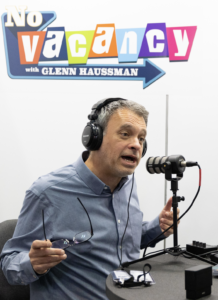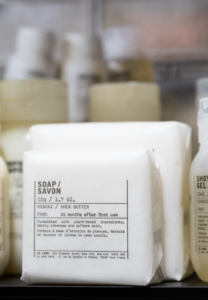 NEW YORK, N.Y. – In the midst of human suffering caused by a global pandemic, the hotel industry continues to lick its financial wounds. With stay-at-home orders the norm over the past month, it quickly became clear that the corona virus was brutally suited to wreak havoc on an industry that depends on people moving confidently from place to place.
NEW YORK, N.Y. – In the midst of human suffering caused by a global pandemic, the hotel industry continues to lick its financial wounds. With stay-at-home orders the norm over the past month, it quickly became clear that the corona virus was brutally suited to wreak havoc on an industry that depends on people moving confidently from place to place.
“For the hotel industry to thrive, it needs unimpeded travel,” says JP Ford (pictured, left), ISHC, senior vice president and director of Global Business Development, Lodging Econometrics, Portsmouth, N.H. “Where the world is today is the exact opposite. If you are currently an open and operating hotel, it’s been pretty devastating. You have all forces working against the travel industry, and for good reason.”
“The virus’ effect on the hotel industry is the worst thing you could possibly imagine, and then you double it,” laments Glenn Haussman, founder, No Vacancy News and Podcast. “It’s surreal. And yet, the professionals I’m speaking with every day are incredible. They are taking this situation and dealing with it in human terms and getting through it.
 “I’m speaking with CEOs of management companies, and these people are getting on the phone with competitors and just trying to help each other and share best practices in a way that I’ve never seen before,” Haussman continues. “While everything has fallen apart on the financial side, the spirit of hospitality has never been stronger.”
“I’m speaking with CEOs of management companies, and these people are getting on the phone with competitors and just trying to help each other and share best practices in a way that I’ve never seen before,” Haussman continues. “While everything has fallen apart on the financial side, the spirit of hospitality has never been stronger.”
According to Ford, many hotels that rely on business travelers have closed, but there are “smaller mid-market and economy hotels scattered throughout rural America that are still open and operating.” Occupancy rates and RevPAR levels are down, but officials at these facilities are doing everything they can to remain open and serve their guests.
As for hotels that are in the pipeline and under construction, Ford believes that most will go forward. “We’ve done some analysis, talking with a lot of developers, and we concluded that hotels under construction right now are continuing, and will open,” he says. “There have been a few cities and states that have shut down construction, but if you are under construction, and it is still allowed, then you’re going to open.”
The Future
What exactly can operators do to make customers feel safe again? For starters, Haussman believes hoteliers must establish clear messaging around cleanliness. “They need to communicate that this place is safe, and this is the place where guests can feel comfortable in a way that we’ve never seen before,” he says. “That’s number one. After that, people will start to gain confidence.”
 Travelers anxious to get back on the road will likely be the first to begin the process of building confidence. “You will get people who have that pent up demand, and you will see that burst, and then other parts of society will start to come back,” Haussman says. “But there will be suffering, and there will be a long transitional period before we get back, mainly because a lot of people are losing their jobs. People are not going to be able to take trips. Companies are going to initially say, ‘Maybe we don’t need to send people to the next meeting.’ It’s going to hurt, and it’s going to be for a while.”
Travelers anxious to get back on the road will likely be the first to begin the process of building confidence. “You will get people who have that pent up demand, and you will see that burst, and then other parts of society will start to come back,” Haussman says. “But there will be suffering, and there will be a long transitional period before we get back, mainly because a lot of people are losing their jobs. People are not going to be able to take trips. Companies are going to initially say, ‘Maybe we don’t need to send people to the next meeting.’ It’s going to hurt, and it’s going to be for a while.”
“I believe we will see an elongated U-shaped recovery with business transient, followed by leisure, followed by group,” adds Joel Carver, CEO, The Carver Companies. “I believe we will not see significant group recovery until 2021. Groups will be looking to negotiate attrition significantly differently than in the past.”
A year from now, Ford thinks the industry will still be recovering. “I’m hopeful that all the pieces come together relating to this pandemic so we can move on as a country with the safety of citizens in mind. I think leisure markets are going to come back before some of the big downtown markets. Out in suburban and rural America, it’s pretty easy to stay six feet apart vs a cramped city downtown.
“However, it is important that cities and the economic engines of the country do come back just as quickly as they possibly can,” Ford continues. “We’ll be climbing out, occupancies will be climbing, hopefully rates will be rising, RevPAR will be rising—I’m very hopeful. I think there’s a lot of pent up demand ready to hit the road—both in the leisure market and in business travel.”
 Haussman is also cautiously optimistic, and maintains that any attempt to predict a “permanent” new normal is fraught with uncertainty. He puts it this way: “You’re in dangerous territory when you say the word ‘permanent.’ I heard that after 9/11, and in the wake of the great recession. The fact is that human beings are programmed in their DNA to explore and travel. Inevitably it will get back to that point, but it’s really a matter of getting past all of this—and that is going to take time.”
Haussman is also cautiously optimistic, and maintains that any attempt to predict a “permanent” new normal is fraught with uncertainty. He puts it this way: “You’re in dangerous territory when you say the word ‘permanent.’ I heard that after 9/11, and in the wake of the great recession. The fact is that human beings are programmed in their DNA to explore and travel. Inevitably it will get back to that point, but it’s really a matter of getting past all of this—and that is going to take time.”
On the food and beverage (F&B) side, Joseph Schumaker (pictured left), FCSI, founder and president, FoodSpace, has pondered a new world of virus co-existence, up to and including a post vaccine era. As a consultant, he admits it’s too early to know the exact impact, but he is pondering several fundamental questions/problems, such as:
- Since many restaurants will never reopen, what will the effects be on the commercial real estate sector, and how do we repurpose those spaces?
- Will standard restaurant kitchens be converted to ghost kitchens (cooking facilities set up for delivery-only meals)?
- Will there be social distanced gatherings?
- Did the pandemic kill the buffet? If so, is this temporary, and what can we do to effectively utilize these spaces?
- Will grocery stores take back the market share they had been losing to food service?
- Will millenials and GenZ learn to cook at home?
